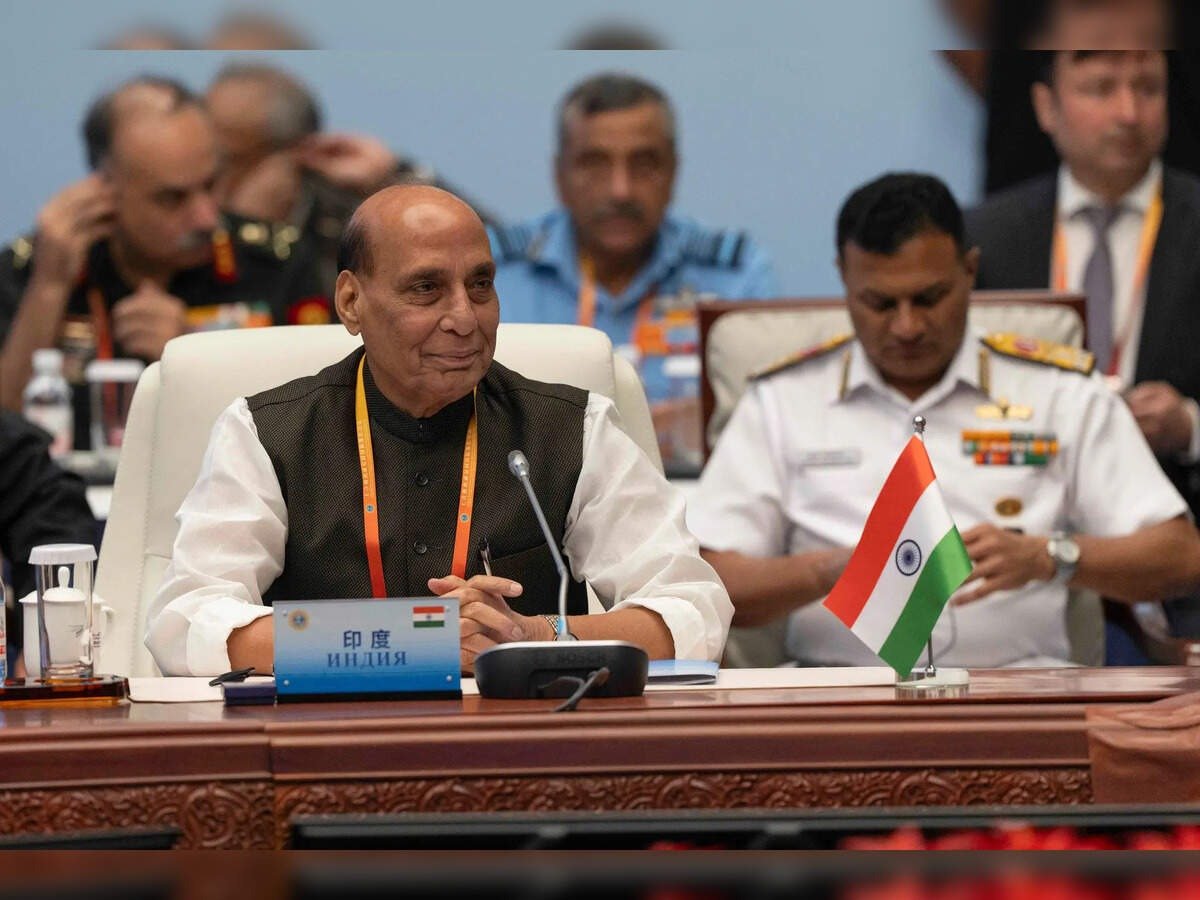In a bold move during the Shanghai Cooperation Organisation (SCO) defence ministers’ meet in Qingdao, China, India blocked the release of a joint statement, taking a firm stand against what it described as the group’s failure to address the pressing issue of cross-border terrorism.
Defence Minister Rajnath Singh, representing India, declined to sign the draft communique, citing its lack of direct mention of terrorism originating from across the border — a clear reference to Pakistan. Singh asserted that terrorism, especially when used as a state policy tool, must be condemned outright and without double standards.
“The threat we face today stems from growing radicalisation and extremism. Terrorism cannot coexist with peace,” Singh said during his address. He emphasized that the SCO must take a unified and uncompromising stance against terror in all forms.
Highlighting the April 22 Pahalgam terror attack — which India blames on Lashkar-e-Taiba — Singh said that India’s Operation Sindoor was a direct response to such brutality. “India has adopted a zero-tolerance policy. We’ve shown that even the heartlands of terrorism are not beyond our reach,” he declared.
With China chairing the SCO this year and Pakistan also among the member states, India’s refusal to toe the line sends a sharp diplomatic message. Singh warned that nations giving safe haven or support to terror groups for selfish gains must face consequences.
Despite India’s global efforts, including calls for international action against Pakistan-sponsored terrorism, recent developments have posed challenges. Notably, Pakistan’s diplomats have secured key roles at the UN, including chairing the 1988 Sanctions Committee and vice-chairing the Counter-Terrorism Committee.
“The SCO cannot afford silence or ambiguity when it comes to terror.
India Refuses to Sign SCO Joint Statement Over Terrorism Silence, Sends Strong Message on Pakistan’s Role





